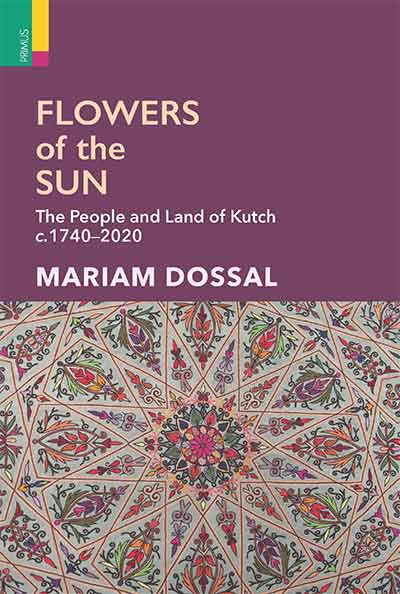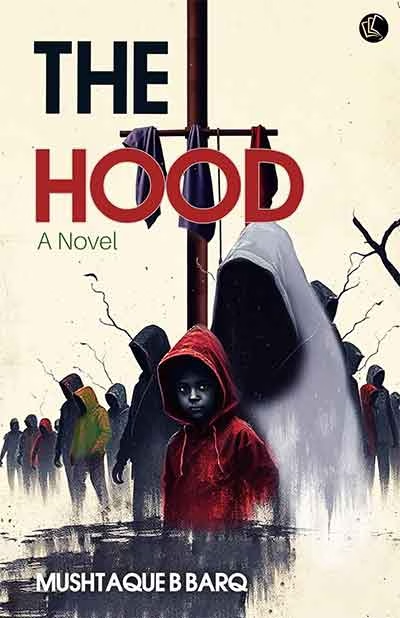Some people seem to have a charmed life. Mariam Dossal is one of them. She is the author of a number of books on history, has had a good academic career, she lives in a four storey , well painted all white family owned building in a prime area in Bandra in Mumbai. She is a former head of the department of history, Mumbai university.
For her recently published book on Kutch she got from Mumbai university a year’s leave and a sabbatical for one year to avail of a year’s membership of the Institute of Advanced Study , Princeton, U.S. that gave her access to libraries anywhere in the U.S. and then in London and Edinburgh.

And of course there was access to numerous libraries in Mumbai and in Kutch including the Pragmahal palace and library in Kutch. Her mother’s family is from Kutch, Mariam’s great grandfather was Seth Pyarally Abdula Dossal. His story is one of rags to riches , like many Khoja merchants he made his money trading with Eritrea and Zanjibar in wheat, oil, mother of pearl and more.
She covers a wide canvas in her book and the good part is that she also devotes space to the flora and fauna, the rich cultural heritage , the handicraft from here that made their mark in England and attracted the attention of William Morris, textile designer, poet, socialist. The Art Workers’ guild sought t raise he status of the artist-craftsmen and restore the position of handicrafts in society increasingly being loaded with industrial goods.The Royal academy of arts saw this art as not `high art”.
Also changes in geography, water shortage brought about through rivalries, blocking of access through bunds and earthquake. Local chieftains also supported banditry and piracy which were checked by the East India company to protect its ships and trade.
One of her major sources of information about the more recent history of Kutch was journalist Pravinbhai Shah who was a regular columnist for the Gujarati newspaper Kutch Mitra for 17 years and who remained highly active till the age of 87.
He was critical of writing on Kutch in English which misrepresented facts and sought to whitewash corruption and political repression rampant in Kutch.
She also writes about the pollution caused by coal dust from Adani port in Kutch affecting the livelihood of fishermen. And about the pastoral communities, the camel herders of the Rann and coastal Kutch and traditional salt farming practices.
Kutch’s vast dry open spaces hide more than they show. The Banni area is a good example, Herds of large Banni buffaloes, magnificent animals with shining coats of black, grey and brown amble along the road grazing on seemingly invisible grass, yielding abundant milk. The area has many varieties of grass which can come to life with proper water supply
The book’s title Flowers in the Sun is taken from the tale of a former ruler who saw himself as the flower of the Sun, the Sun is so dominant in Kutch.
Flowers of the Sun: The People and Land of Kutch, c.1740–2020 examines Kutch’s rich and fascinating history, spanning nearly three centuries. It highlights the strong Sufi tradition of Kutch, the shared love of the land and the awareness that survival in the harsh environment requires cooperation and innovation, ‘mil and mithas’, friendship and sweetness.
The early years of the nineteenth century witnessed efforts by the British to establish political and military control over Kutch, Sindh and north-west India. Thwarted by effective Kutchi resistance under the able leadership of military commander Jamadar Fateh Mahomed, this period constitutes a significant marker in Kutch’s history. His death in 1813 was followed by increasing British domination over the princely state, until India (and Kutch) gained Independence in 1947.
Special attention is paid to Kutch’s participation in the Indian national movement, hitherto almost absent from history books. The role of important leaders, notably, Yusuf Meherally, K.T. Shah, M.M Mehta, Jilubha Jadeja among others, reveal the dominant concerns of the people of Kutch. This historical study concludes with the devastating earthquake of 26 January 2001 and the significant changes that have taken place thereafter.
Substantial profits made in the African slave trade by members of the Bania, Bhatia, Khoja and Memon trading communities of Kutch reveal a dark aspect of Kutch history. The determination to establish successful business ventures overrode all human considerations. States Chhaya Goswami: Kutchis, “functioned as slave owners, slave dealers and organisers of slave caravans, who transported slaves to ports in the Red Sea, the Persian Gulf, Kutch and Kathiawar. In the 1830s it was reported that more than 200 slaves were brought to Mandvi annually. These were procured from places as distant as Zanzibar, Jeddah, Yemen and Mozambique.”
This 428 page book is a bit high priced at Rs 1995 and perhaps it could have been trimmed.
Vidyadhar Date is a senior journalist and author of a book on public transport















































